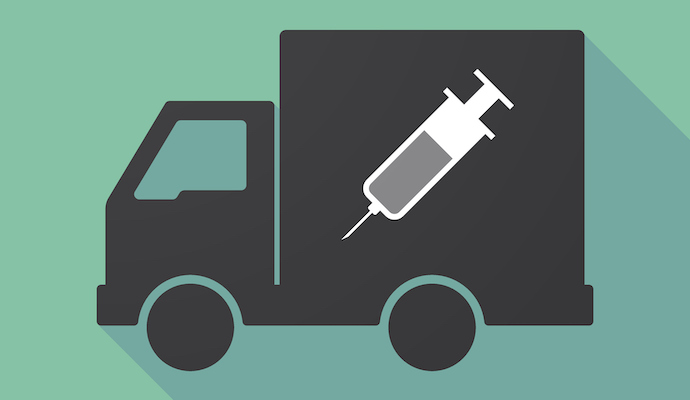ACHP: Access to CDC COVID-19 Vaccine Data Key to Member Engagement
The payer organization argued that claims and billing data is slow and incomplete, hindering effective member engagement for vaccine distribution.

Source: Getty Images
- Health plans would be able to improve their coronavirus vaccine distribution strategies if they had more access to coronavirus vaccine administration data, the Alliance of Community Health Plans (ACHP) argued in a letter to the incoming coordinator of the COVID-19 response and counselor to president-elect Joe Biden, Jeff Zients.
“As states and providers ramp-up vaccine administration, we continue to face resistance from federal officials to access vaccination data,” ACHP stated.
“In order to be the most effective partners in on the ground vaccination, ACHP CEOs and chief medical officers assert that it is critical that health plan clinical leaders have access to CDC’s ‘data lake’ to determine whether a member has received a COVID-19 vaccination, which vaccine they received and when they will need to receive a second dose.”
Payers with membership in ACHP rely upon public service announcements and other messaging strategies to encourage vaccination, the payer organization explained. But payers lack access to data that could help them formulate more targeted messages to members who have yet to take the vaccine.
Personalization is key to member engagement. Poor member satisfaction scores coupled with regulatory changes that increased the weight of patient satisfaction may have served to remind payers about the fundamentals of member engagement in 2020.
One of those fundamentals is the ability to customize and target messages appropriately, often using advanced analytics and specialized engagement teams.
Without access to data identifying who has taken the first and second doses of the coronavirus vaccine, payers will be stunted in their efforts to personalize and target vaccine-related messages. As a result, they may have less success in educating members about the vaccine.
Lack of vaccination data access could pose a particular problem for ACHP members, the letter argued. Because of their strong ties to their local communities, community health plans play a role in addressing inequities and disparities in healthcare. Thus, lack of access to vaccination information could perpetuate healthcare inequities, the letter implied.
In order to inform these efforts, the payer organization requested access to the “immunization data lake.” Data in the Tiberius platform which the federal government uses to distribute vaccines to states is stripped of patient identifiers. This allows officials to generate and share a high-level perspective of the nation’s vaccination rates without exposing individual patient information.
In contrast, the data in the CDC immunization data lake is connected with patient data, which would allow payers to verify whether a specific patient has received both doses of her vaccination.
Opponents to ACHP’s request might respond that payers should be able to access that patients' vaccination data by looking at their members’ billing and claims data.
However, ACHP argued that claims and billing data are inadequate for timely, personal member engagement.
“Claims are a lagging indicator, and in many instances, it could be weeks or months after a vaccination has been performed that the claim is received,” the letter explained.
The payer organization added that in certain scenarios--such as a patient receiving his vaccination through a public health clinic--payers might never see the claims data for a vaccination.
“Health plan access to the CDC database would address these issues and enable targeted outreach, communication and follow-up with patients through this complex vaccine rollout,” the health plans said.
The health plans asked that the Biden administration prioritize this request during its first days in office.
Overall, payers’ primary concern related to the coronavirus vaccine has been efficacy, according to an Avalere report from December 2020. Fears about whether the vaccine would actually succeed in preventing further spread of COVID-19 far surpassed secondary concerns about the coronavirus vaccine’s distribution, pricing, and accessibility.
In fact, only 12.5 percent of payers that participated in the Avalere report stated that effective distribution and patient access was their primary concern.
